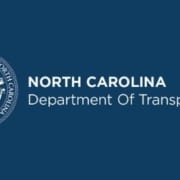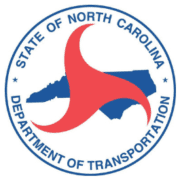Biotechnology continues to be a growing field in North Carolina, and Vance-Granville Community College recently announced that it will get $1.75 million to help expand its own biotechnology workforce training program.
VGCC is included in a statewide consortium of colleges, universities and other strategic partners like the N.C. Biotechnology Center and the N.C. Community College System’s BioNetwork, which collectively received a grant award totaling nearly $25 million from the U.S. Economic Development Administration’s Build Back Better Regional Challenge.
The “NC BioBetter”project will provide grant funding to VGCC and nine other community colleges across the state, according to a press release from VGCC’s Dr. Jerry Edmonds III, VGCC vice president for Workforce & Community Engagement.
Stewart Lyon heads the school’s Bioprocess/Biotechnology program and said the funding will be used to buy new equipment for the current lab, which is located at the Franklin Campus,“so that students can get the up-to-date training they need,” Lyon said.
He said the program will create a second lab on campus so students can participate in day and evening courses.
“Vance-Granville Community College is delighted to be part of a coalition designed to increase access to good paying jobs in the Life Sciences sector,” said Dr. Rachel Desmarais, the president of VGCC. “Working together with partners from government agencies, private industry, K-12 schools, other community colleges and universities, VGCC is excited to bring this spectacular vision to life in our region.”
But the grant also will provide funds to add positions for three years. “Specifically, we are looking to hire one additional full-time biotechnology instructor as well as a full-time ‘pathway navigator,’ who will be an intensive advisor for the program,” Lyon said. “The navigator will reach out to the community, help new students through the onboarding admissions process, provide academic advising and mentorship throughout the students’ time in the program, and finally help complete their journey with resume prep and job search assistance as they prepare to graduate.”
Lyon noted that this project is designed to increase the number of North Carolinians who are trained and ready to fill positions in the biopharmaceutical industry workforce, with a specific intent to expand opportunity to under-represented populations in that field, including women and people of color. “This is a significant focus, but everyone enrolled in the program will equally benefit from the resources of the grant, including the faculty and staff it provides,” he said.
VGCC enjoys strong partnerships, particularly in the Franklin County area, which are helping to promote biotech and life sciences.
The grant funding is expected to have a ripple effect into the larger community, from creating a partnership with Louisburg High School for a STEM focused pathway for students interested in programs like Medical Office Administrative Assistant, Bioprocess Technology, and Information Technology/Cyber Security Support.
The STEM magnet program will become available to high school students throughout Franklin County. “We’re very excited for this opportunity and believe this is a way to make Bioprocess Technology available to more students,” said Danyelle Parker, executive director of secondary education and CTE for Franklin County Schools.
“We hope to grow the program and incorporate work-based learning, such as field trips and job shadowing with area Bio/Life Sciences companies. With growing demands in this field, we believe Bioprocess Technology is an excellent career opportunity for our students, and we are thrilled to be partnering with VGCC for this endeavor.”
In the Bioprocess Technology credit (curriculum) program, VGCC offers a certificate, which can be completed in six months; a diploma program, which takes about one year, and the two-year Associate in Applied Science degree. All these options are eligible for federal financial aid to qualified students. In addition, there is a BioWork Process Technician continuing education course offered periodically, in a format that takes less than one semester to complete. Prospective students can register now for “Bioprocess Practices” (BPM-110), which starts Jan. 6, 2023, in a hybrid format, combining some online coursework with in-person instruction at the Franklin Campus.
Anyone interested in becoming a biotechnology student is invited to contact Stewart Lyon at lyons@vgcc.edu or Veta Pierce-Cappetta at piercev@vgcc.edu.










